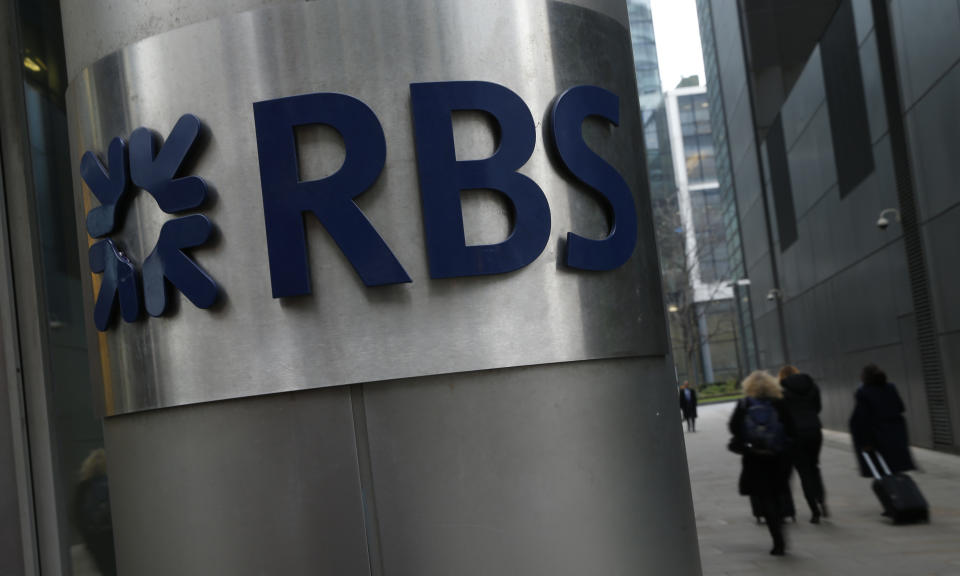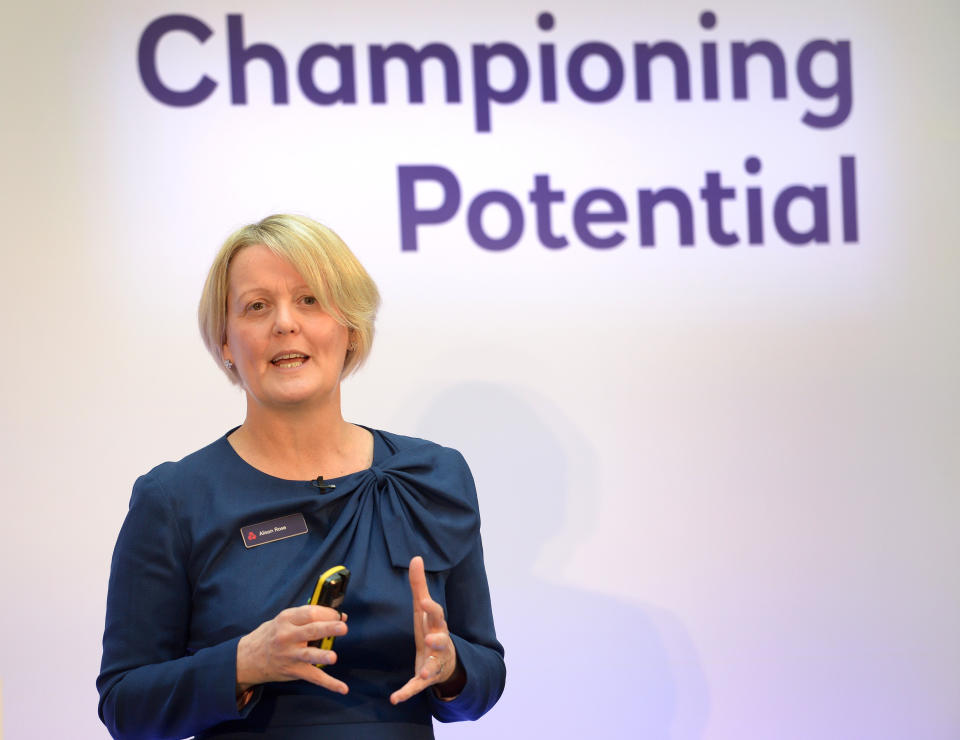RBS profit halves as it sets aside £802m to cover COVID-19

Royal Bank of Scotland’s (RBS.L) profit halved in the first quarter of 2020, as loss provisions soared by almost ten times due to COVID-19.
RBS’s pre-tax profit fell 49% to £519m ($651.5m) in the first three months of the year. Profit attributable to shareholders fell 59% to £288m.
Both measures were higher than analysts had expected, thanks in part to strong revenue growth. Income in the quarter rose 3% to £3.1bn, which was above forecasts. Revenue jumped 9.3% at RBS’s trading arm, Natwest Markets.
Chief executive Alison Rose told journalists on call “January and February were very strong months for us,” thanks to buoyant mortgage lending.
Read more: Lloyds Bank profit dives 95% as it sets aside £1.4bn to cover COVID-19
First quarter profits were held back by loss provisions, which were higher than analysts had expected. RBS set aside £802m to deal with credit losses in the quarter, up from just £86m a year earlier. Analysts had penciled in a charge of £515m.
Rose said the jump in credit provisions was down to the COVID-19 pandemic, which is likely to push up defaults.
“Every person, family and business has been affected by the current situation and normal business activity has been severely impacted,” Rose said in a statement.
“We are putting our purpose into action and I am proud of how we have responded, providing our customers, communities and colleagues with the support they need.”
Rose told journalists: “Largely we’re not seeing defaults or delinquencies at the moment,” with customers instead using government support measures or asking the bank for payment holidays.

While credit impairments were higher than expected, they were well below what peers have set aside to cover an expected surge in bad loans. Lloyds (LLOY.L), HSBC (HSBA.L), and Barclays (BARC.L) have collectively set aside over £6bn in recent days.
Rose said the provisions were a “considered” estimate and pointed out RBS had already built over £4bn of reserves to deal with losses. She added that RBS had a smaller unsecured lending business than rivals, which limited potential downside.
However, RBS has not taken a firm view on the outlook for the economy, suggesting more provisions may need to be set aside in the coming quarters as the crisis progresses. Rose said it was “too early to estimate the shape and scale” of the crisis.
Read more: Barclays' profit falls 38% as it sets aside £2.1bn to cover COVID-19 losses
“Although the outlook remains extremely uncertain, we approach the crisis from a position of strength, with confidence in our balance sheet and focus on our strategic priorities,” Rose said in a statement.
RBS has granted over 190,000 mortgage holidays and set up 16,000 interest free overdraft buffers for customers since the coronavirus crisis began.
The bank has also written £1.5bn worth of coronavirus-business interruption loans, 40% of the total by value, and helped bigger businesses raise £3bn through the Covid Corporate Financing Facility programme. 25,000 capital repayment holidays have been granted to businesses.
Natwest Markets is currently in the process of being wound down as RBS focuses on traditional retail and commercial banking operations. RBS took a £34m charge in the first quarter linked to the restructuring.
RBS also announced it was shutting its consumer-facing digital bank Bó after just six months. Rose said the bank “had to make prioritisation choices around where we should invest.”

 Yahoo Finance
Yahoo Finance 